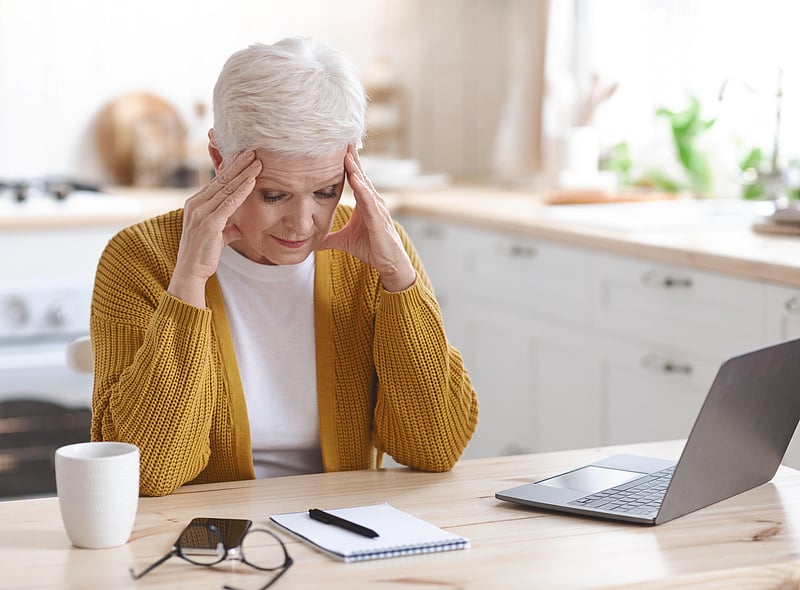Get Healthy!

- Alan Mozes
- Posted June 6, 2022
Placebo Pill Eases Cancer-Related Fatigue in Study
Patients with advanced cancer often suffer crippling fatigue, but there has been little in the way of relief for them as they battle their disease.
Now, a new investigation may have landed on a surprising solution -- a dummy pill that contains no medication of any kind.
"Cancer-related fatigue is the most frequent and debilitating symptom experienced by advanced cancer patients," explained study author Dr. Sriram Yennu.
In fact, between 60% and 90% of patients end up waylaid by persistent fatigue, noted Yennu, a professor of palliative, rehabilitation and integrative medicine at the University of Texas MD Anderson Cancer Center in Houston.
Encouraging patients to engage in physical activity is the usual go-to treatment. But many patients simply aren't strong enough to manage it, he added. And those who do typically experience only a "very modest benefit."
So Yennu and his colleagues decided to test the effects of a dummy medication, or placebo.
The concept is rooted in the so-called placebo effect. It's a real-world dynamic that the U.S. Center for Complementary and Integrative Health defines as a "beneficial health outcome resulting from a person's anticipation that an intervention will help," even absent any active medication.
Indeed, in an earlier investigation Yennu's team found that when patients were simply offered a placebo, more than half (56%) did experience significant fatigue relief.
This time around, however, they decided to go a couple of steps further.
A total of 90 participating patients were told in advance that the twice-daily "fatigue pill" they were being offered contained no actual medicine. In other words, no patient embarked on a dummy pill regimen without explicitly knowing that was the case.
Half were told to take the pills, and the other half were given no treatment of any kind for one week, meaning neither an actual medication nor a dummy pill.
The result: After the first week, those who had been randomly assigned to openly receive a dummy pill experienced significant fatigue relief, considerably more than those enrolled in the one-week long, treatment-free group.
From this point, patients from both groups were given the dummy pills. The team then checked back with all participants a month after the study launch.
The finding: Significant fatigue relief was seen across the board, with no difference between those who had taken dummy pills for a full month and those who had taken it for three weeks.
Yennu said more research will be necessary before deciding to routinely include placebo treatment as standard care for cancer patients.
But at the same time, he pointed out that placebos might actually offer benefits for other ailments.
Yennu noted that the dummy pill benefits seen in the context of fatigue are "consistent with prior published studies using 'open-label placebo' for treatment of chronic pain, episodic migraine attacks, allergic rhinitis, major depression, menopausal hot flashes, attention-deficit hyperactivity disorder, irritable bowel syndrome, and in cancer survivors with cancer-related fatigue."
Yennu and his colleagues presented their findings this week at the American Society of Clinical Oncology (ASCO) annual meeting, in Chicago. Research presented at meetings should be considered preliminary until published in a peer-reviewed journal.
Corinne Leach, a senior principal scientist in behavioral research with the American Cancer Society, described the finding as "interesting," and acknowledged that the amount of relief seen in the study "was statistically and meaningfully significant."
But Leach, who wasn't part of the study, also cautioned that the finding "warrants further investigation with a larger sample," to specifically compare the amount of fatigue relief gained via dummy pills with the amount of relief gained from standard treatments, such as physical activity and/or psychological interventions.
More information
There's more on cancer-associated fatigue and weakness at the American Cancer Society.
SOURCES: Sriram Yennu, MD, professor, palliative, rehabilitation, and integrative medicine, University of Texas MD Anderson Cancer Center, Houston; Corinne Leach, PhD, MPH, MS, senior principal scientist, behavioral research, American Cancer Society; American Society of Clinical Oncology annual meeting, June 3-7, 2022, Chicago






